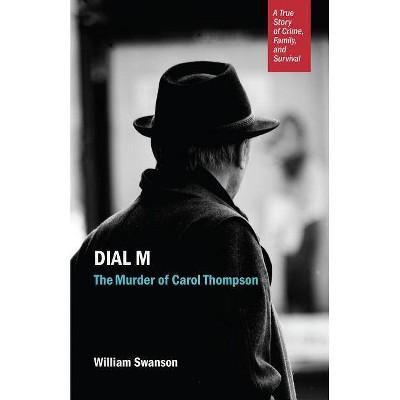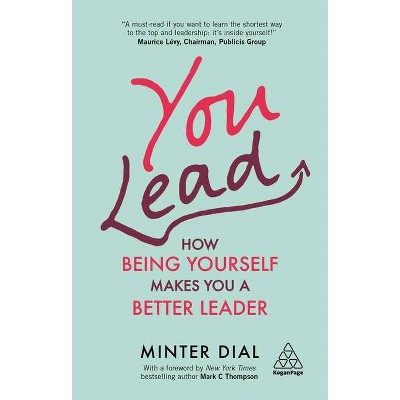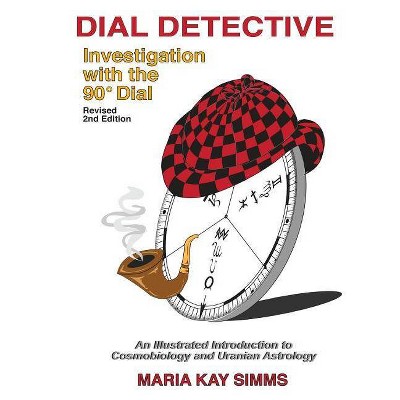Dial It Down - by Faota (Paperback)

Similar Products
Products of same category from the store
AllProduct info
<p/><br></br><p><b> About the Book </b></p></br></br>Trauma is perhaps the defining feature of our time. Millions of Americans have recently experienced trauma through their work as military servicemembers, first responders, and frontline medical workers. Millions more have faced unprecedented levels of loss and traumatic stress due to the COVID-19 pandemic. But very little has been written that directly speaks to these trauma survivors, offering proven daily strategies and hope for reclaiming a sense of safety, connectedness, and self. Dial It Down offers innovative yet simple ways for readers to understand and recover from post-traumatic stress. <p/>Dr. Judith Kimball draws on the latest scientific research and on her years of experience working with trauma survivors to reveal that while trauma is often seen purely as a mental health issue, it also leads to physical changes in how the brain reacts to stimuli from the environment, creating a bias toward a fight-or-flight response. This fight-or-flight hyperarousal is important for staying alive during trauma, but it can persist when the trauma is over, severely limiting the ability to participate fully in life, including in relationships with family and friends. <p/>The book includes client histories to demonstrate the often-subtle effects of trauma, including problems with physical intimacy and wariness even in familiar settings. Along with each of these stories, Dr. Kimball offers inspiring examples and strategies for personal transformation. <p/>Dial It Down will reshape how readers understand their responses to life after trauma, and will provide the tools needed to heal. The book offers proven methods for assessing fight-or-flight hyperarousal, and for designing simple self-treatment programs. As people suffering from traumatic stress regain a sense of control over their own daily responses, they will also regain a sense of connectedness to others. Dial It Down shows that post-traumatic healing and growth are possible, for individuals, families, and communities.<br><p/><br></br><p><b> Book Synopsis </b></p></br></br>Trauma is perhaps the defining feature of our time. Millions of Americans have recently experienced trauma through their work as military servicemembers, first responders, and frontline medical workers. Millions more have faced unprecedented levels of loss and traumatic stress due to the COVID-19 pandemic. But very little has been written that directly speaks to these trauma survivors, offering proven daily strategies and hope for reclaiming a sense of safety, connectedness, and self. Dial It Down offers innovative yet simple ways for readers to understand and recover from post-traumatic stress. It is also an invaluable resource for the practitioners who treat these individuals. <p/>Dr. Judith Kimball draws on the latest scientific research and on her years of experience working with trauma survivors to reveal that while trauma is often seen purely as a mental health issue, it also leads to physical changes in how the brain reacts to stimuli from the environment, creating a bias toward a fight-or-flight response. This fight-or-flight hyperarousal is important for staying alive during trauma, but it can persist when the trauma is over, severely limiting the ability to participate fully in life, including in relationships with family and friends. <p/>The book includes client histories to demonstrate the often-subtle effects of trauma. An Iraq War veteran who'd become hyper-alert to things out of place as signs of danger is ashamed to find himself suddenly losing it with his children over cluttered toys when he returns home. A nurse, after months of working on a COVID-19 ward, finds herself being strongly startled by noises at home such as beeping household appliances that had never bothered her before. Countless husbands and wives face unexpected issues with physical intimacy after trauma, as fight-or-flight hyperarousal can change patterns of sexual response and lead to misunderstandings, self-doubt, and a heightened sense of isolation. Along with each of these stories and many more, Dr. Kimball offers inspiring examples and strategies for personal transformation. <p/>Dial It Down will reshape how individuals understand their responses to life after trauma, and will provide the tools needed to heal. The book offers proven methods for assessing fight-or-flight hyperarousal, and for designing self-treatment programs using common activities--some as brief as 5 minutes--with specific tips to fit them into busy lives and increase their effectiveness. <p/>As people suffering from traumatic stress regain a sense of control over their own daily responses, they will also regain a sense of connectedness to others. Dial It Down offers new ways of talking about experiences, empowering individuals to take steps toward repairing the intimate relationships that often suffer most in the aftermath of trauma. Dial it Down shows that post-traumatic healing and growth are possible, for individuals, families, and communities.<br><p/><br></br><p><b> About the Author </b></p></br></br>Judith Giencke Kimball, PhD, OTR/L, FAOTA, has worked as a clinician and university professor in occupational therapy for over 50 years. She was the Founding Director and now Professor Emeritus of the Occupational Therapy curriculum at the University of New England in Portland, Maine. She has served as Occupational Therapy Director at a University Hospital, Occupational Student Education Coordinator at a VA Hospital, a consultant to many school-based occupational therapy programs, and has consistently maintained a part-time private practice. She worked extensively with Dr. A. Jean Ayes, the developer of Sensory Integration theory and practice, and Patricia Wilbarger, the originator of clinical treatments for sensory defensiveness. Dr. Kimball speaks widely at professional conferences, and her numerous publications include book chapters and research articles in peer-reviewed journals. Her academic degrees include a BS in Occupational Therapy, an MS in Special Education, a Certificate in Marriage and Family Therapy, and a PhD in Psychology. <p/>Family ties to the military inspired her work with veterans, a work that in turn inspired her interest in researching and applying innovative and effective treatments for the sensory components of trauma. She is the oldest of five children of a career Air Force officer who served during and after WWII; her brother was an Air Force officer during the Vietnam era; and her son-in-law served with the Army 10th Mountain Division in Bosnia. <p/>Her own interesting Air Force story is of watching a helicopter in flight suddenly explode from across the street on the military base where her family lived when she was 9 or 10. She reports that pieces fell down on me, but surprisingly they were only laminated plywood, not metal. The MPs (military police) told us kids to pick up any pieces we found and turn them in to them. The experience didn't seem unusual at the time, although it left vivid memories and it certainly does in looking back.
Price History
Price Archive shows prices from various stores, lets you see history and find the cheapest. There is no actual sale on the website. For all support, inquiry and suggestion messages communication@pricearchive.us




















